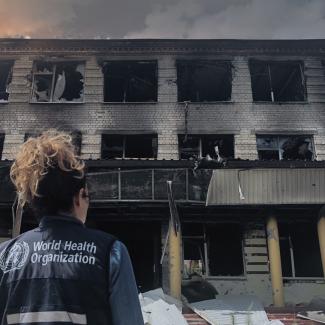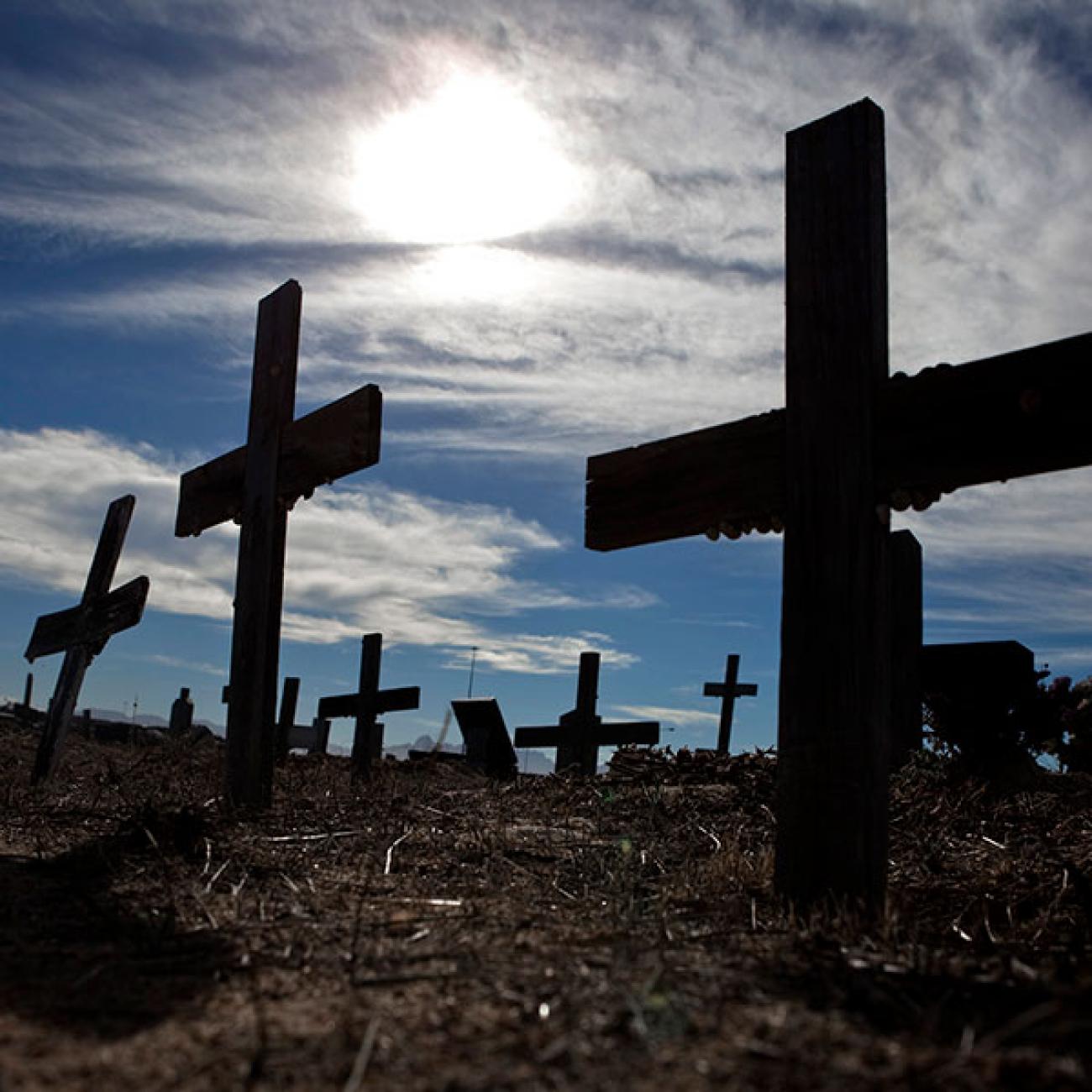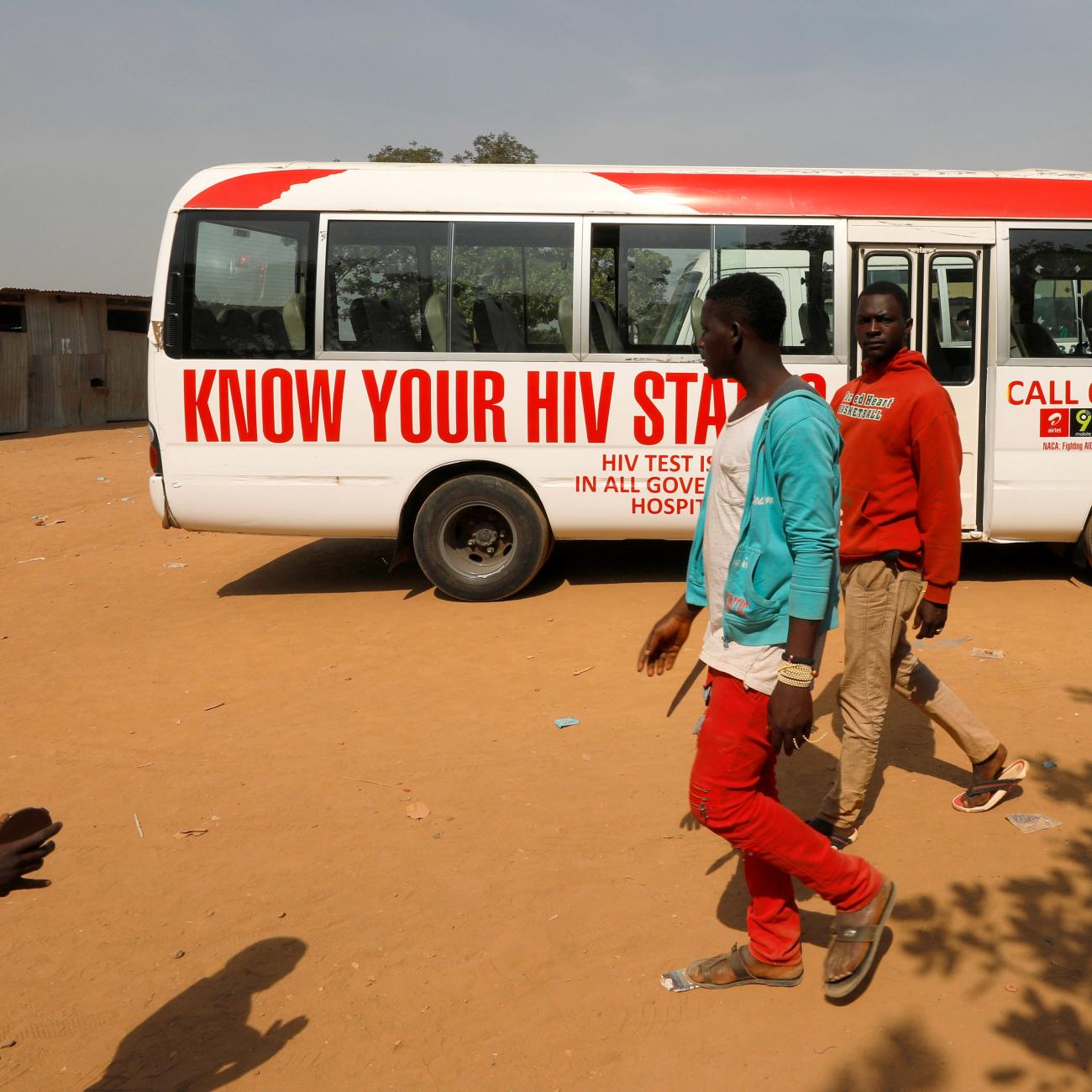The $1.2 trillion spending bill recently passed by Congress has, for the moment, put an end to the tumultuous period surrounding the President's Emergency Plan for AIDS Relief (PEPFAR) by extending it for another year.
Buried within a massive appropriations bill, a few lines now ensure the continuation of this crucial public health initiative that has saved more than 25 million lives worldwide by providing essential resources for HIV care and prevention. Yet the one-year extension casts a shadow over the program's future and serves as a wake-up call to rejuvenate the global AIDS fight.
Off the heels of a bipartisan Senate Foreign Relations Committee hearing last April, PEPFAR was poised to secure a seamless reauthorization in 2023. In recent years, amid multiple humanitarian crises and the COVID-19 pandemic, PEPFAR was heralded for swiftly adapting its delivery networks and partnerships to continue its lifesaving mission while temporarily expanding its services to include coronavirus testing, personal protective equipment distribution, and vaccination.

During the toughest COVID months, I experienced firsthand, as PEPFAR's acting chief of staff, how the program exemplified American soft power by supplying health workforces and disease detection capabilities for South Africa—the country with the largest PEPFAR portfolio—and other nations across the continent.
Despite the Joe Biden administration's actions to support PEPFAR, the short-term congressional authorization injects uncertainty into the HIV program that thrives on stability and predictability as well as the global health security that it underpins.
PEPFAR's success lies in its ability to establish lasting multiyear partnerships
PEPFAR's success lies in its ability to establish lasting multiyear partnerships with governments and U.S. government implementing agencies, chiefly the Centers for Disease Control and Prevention, the Peace Corps, the U.S. Agency for International Development, and the U.S. Department of Health and Human Services. The program fosters trust and collaborative efforts in the fight against HIV/AIDS.
These relationships, especially with country governments, private-sector actors, and within the government interagency framework are predicated on trust, mutual goals, and the assurance of long-term commitment.
How PEPFAR Came Under Threat
Having tackled HIV and COVID-19, PEPFAR—rather than contending with a new virus—now faced a new crisis, one that originated from within its circle of initial advocates, notably Representative Chris Smith (R-NJ). In June 2023, Smith cast unfounded accusations at PEPFAR, charging the Biden administration with redirecting the program's focus to support abortion. The manufactured allegations not only distracted from PEPFAR's mission but also drew attention from extreme Republican isolationists obsessed with restricting reproductive freedom and former Donald Trump administration officials urging Congress not to continue supporting PEPFAR's lifesaving mission.
Smith's critics and PEPFAR advocates were quick to point out that the program was already legally prohibited from funding abortion. The Helms Amendment, which prohibits the use of any U.S. foreign assistance funds for abortion as a method of family planning is, after all, still intact. Additionally, PEPFAR's guidance documents to countries, notable for its transparency, took the extra step of reiterating that "PEPFAR does not fund abortions, consistent with longstanding legal restrictions on the use of foreign assistance funding related to abortion."
The Biden administration, seemingly distracted by other pandemic priorities, did not focus enough on defending the program against the critics. However, the administration has moved forward with its planned creation of a new State Department Bureau for Global Health Security and Diplomacy and put PEPFAR at the centerpiece. The creation of the bureau, a Biden campaign pledge, was part of a wider effort to strengthen the State Department's role in global disease mitigation and response. By doing so, the administration reaffirmed PEPFAR's value and elevated its role in U.S. foreign policy, countering constant efforts to undermine its foundation and funding.
The politicization of development assistance—in which programs like PEPFAR become bargaining chips in broader political negotiations—erodes the foundational ethos of such initiatives. These programs are designed to transcend political cycles and affiliations, focusing squarely on saving lives and enhancing public health security.
Looking Beyond a Year
The current state of politics underscores a larger issue—the challenge of ensuring long-term support for PEPFAR. Doing so will require building a new coalition of congressional supporters, as well as networking and reactivating faith-based leaders, private-sector entities, and advocacy organizations working in the HIV, pandemic preparedness, and human rights arenas. Foundations need to step up again, including high-net-worth individuals in Africa, to mobilize resources to carry out the needed advocacy with civil society and affected communities at the center.
The politicization of development assistance erodes the foundational ethos of such initiatives
This moment should not be seen as a sign of inevitable defeat but as a wake-up call. It is a pivotal moment to rally—to rekindle the flame of global activism and advocacy that once defined the global AIDS fight. To do so, new platforms and technologies will need to be leveraged to bring the realities of HIV/AIDS back into the public consciousness.
At a time of wars and famine around the world, new narratives that remind the world of the human toll of inaction and the tangible possibility of an AIDS-free future are needed once again. In telling the story of progress, more spotlights should shine on public health, human rights, and political leadership across countries where PEPFAR operates. By fostering innovation in advocacy and mobilization, a reinvigorated effort can generate support for a more typical five-year reauthorization of PEPFAR to ensure its continued success through 2030 and beyond.
American leadership on AIDS has contributed to the creation of a safer and more stable world. Congress should rise to the occasion, ensuring PEPFAR's legacy and efficacy through sustained support of its unfinished mandate, and by doing so, safeguard not just the health of populations abroad but the very security of the nation.





